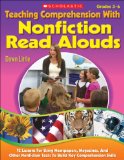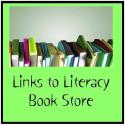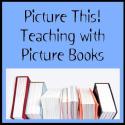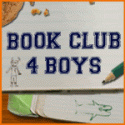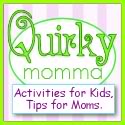Many special thanks to Terry Doherty who agreed to guest post on Literacy Toolbox. In the little over a year that I’ve been blogging, I’ve met many like-minded literacy friends through Twitter. Terry is one of them! Her desire to share books with children and families inspires me! Please read her story to find out how she got started and how The Reading Tub has evolved over the years.
And as I pack up a large box of my children’s books to donate to The Reading Tub, I ask, if you have books to donate, consider donating to The Reading Tub this holiday season.
 Would you believe that as a little girl my parents didn’t read books with me? It’s true. I don’t have any memories of sitting on my mom’s lap or listening to dad read to us. If anyone was going to read, it would have been my dad. He taught history at a Catholic high school and had a “second job” as wrestling coach to bump up his salary. There were many nights that we were in bed before he got home. My mom has never liked reading, and with three of us and a household to run, she was too tired to do something she didn’t enjoy.
Would you believe that as a little girl my parents didn’t read books with me? It’s true. I don’t have any memories of sitting on my mom’s lap or listening to dad read to us. If anyone was going to read, it would have been my dad. He taught history at a Catholic high school and had a “second job” as wrestling coach to bump up his salary. There were many nights that we were in bed before he got home. My mom has never liked reading, and with three of us and a household to run, she was too tired to do something she didn’t enjoy.
So how did I become a reader? Our house was full of books. We had everything from the newspaper, history books, atlases, and the World Book Encyclopedia to The Cat in the Hat, Mike Mulligan’s Steam Shovel, Heidi, Encyclopedia Brown, and Nancy Drew (among others).
Truth be told, having books around doesn’t guarantee that you’ll become a reader. As I mentioned in my introduction at Booklights, my brothers are more like my mom. As kids they didn’t like to read. I will tell you, though, that they read for pleasure now. They model reading and emphasize the importance of reading with their kids. I like to think it’s because they were used to having books around and that’s what “home” means to them.
In the house we grew up in, almost every book was shelved within our reach. We could thumb through the World Book and look up every gross thing we could think of! Or we could pull a picture book off the shelf when we were playing school. Books were everywhere. We lived in a 3-story rowhouse and there were books on every floor.
And it’s been that way ever since. I’ve always had lots of books around. When we started our adoption journey, one of the first places I went was the bookstore. Long before we knew if it would be a boy or a girl, I started filling bookshelves in the nursery. Some books I remembered from my childhood (like Paddington and The Adventures of Winnie the Pooh), but for picture books I went with recognized titles and award-winning books.
To say that they were a hit or miss success with my daughter would be an understatement. This was true not only of books in Catherine’s collection, but the ones we borrowed from the library, too. I was frustrated! How could I get my daughter to love reading if we can’t find something she likes to listen to past the second page? What is the secret to figuring out what will work? Was I the only parent having this problem? My sister-in-law (a high school teacher) said “probably not.” She suggested creating a website for children’s books.
When I started putting together a website in June 2003, I looked at it as the beginning of a new hobby. I loved being a Stay-at-Home Mom, but I missed having something to challenge my mind. I knew diddly squat about how to create a website, but I was intrigued. It would give me the challenge I wanted, but also pull in my love of reading and sharing books with my then 18-month-old daughter.
Three heads are better than one, so I did some research and brainstormed with some friends – both parents of young kids. What we ultimately named The Reading Tub® would be a place to share reviews of children’s books we were reading (or trying to read) with our kids. To add value beyond what you’d find at a bookseller site, and we wanted to have a standard review protocol. In addition to a summary and our thoughts, we included the kids’ opinions of the books; identified any educational opportunities; noted specific pros and cons; recommended 3 similar titles; and closed with a recommendation to buy, borrow, or skip. We launched the website around Halloween 2003 with 50 book profiles in our “book bag.”
In early 2004, authors started finding us. How, I don’t know. Nevertheless, they would ask us to review their books. The shelves started bulging. As grateful as I was for the opportunity to see what was out there, I knew that we didn’t “need” more books. I also knew there were thousands of families who didn’t have one book to share with their kids. So I immediately started the process to transition the Reading Tub, Inc. to a 501(c)(3). The day before Thanksgiving 2004, we received word that we were officially a public charity.
The shift allowed me to draw on my personal experiences, too. When I was growing up, not everyone in our house liked to read. I remember many a summer when my parents struggled to find “the book” that would keep my brothers from whining about having to read. Even now my Mom talks about how even magazine articles can be “too long.” I understood both sides and I wanted the Tub to encourage reading as a family.
The Reading Tub® mantra is “we bring reading home for families.” That captures our family literacy mission in a multitude of ways.
● We get books to at-risk readers and readers in need. Books given to us are read and then donated to another nonprofit, either a literacy organization or a Title 1 school. Our criteria are that the books go to kids who don’t have books at home and/or are students failing benchmarks for their grade.
● We offer resources related to reading. Articles and links on the Reading Tub® website Scrub–a–Dub–Tub (our blog), and the Share a Story Shape a Future literacy blog tour are designed to reassure parents that reading with their kids is doable and provide practical advice about reading.
● We also help adult caregivers connect kids with books that match their interests. All of the books reviewed on our site (almost 2,000) are read with the target audience.
That last point is very important. Not only does it give us a means of sharing what the kids think about a book, but it also ensures that we walk the talk. If we’re going to promote the importance of reading with your child, then we need to show we’re doing it.
We are an all-volunteer organization, and our reviewers include parents and grandparents, librarians and teachers, and kids of all ages. Being an all volunteer staff has its drawbacks, as there are no real employees; volunteers often don’t have as much time as they thought; and people come and go. I end up wearing a lot of hats, which makes it hard to grow as an organization and launch community programs. As long as we are an independent organization, we’ll stay that way because it ensures that donations fund the mission, not the overhead.
When I wrote the original business plan, one of my goals was for the Reading Tub(r) to be a one-stop shop for family literacy and reading ideas within five years. We’re about to celebrate seven years and it hasn’t happened. Given the nature of the Worldwide Web, it isn’t going to happen. But you know what? That’s okay. It means we’re meant to be something else.
What the Reading Tub, Inc. is – and will continue to be – is an active, available partner to our sister agencies. In the last seven years, the voices for literacy have grown into an orchestra. We each bring to the stage our tune for reaching kids, their families, and their caregivers.
Whether we are a parent that reads with our child, a community volunteer in a classroom, a literacy advocate who travels the country meeting with kids and caregivers, or a blogger who shares their love of reading … we share a common goal: encouraging a love of reading.
Just like finding the right book for Catherine, there is no one way to connect kids and caregivers with books. That “aha” moment is different for each person. But when it happens – that moment when a child holds a book that is all theirs and recognizes its power – it is just beautiful!
Terry Doherty is the Founder and Executive Director of The Reading Tub, Inc., a public charity for family literacy. She is the mom to a soon-to-be nine-year-old bookworm. Terry recently celebrated 20 years of marriage to her best friend. When she’s not writing about children’s books, you’ll usually find her reading one. She lives in Charlottesville, VA, in view of Monticello, home to the man who said “I cannot live without books.” [Thomas Jefferson]
 More than twenty years ago I was working as a lawyer, and I volunteered as a reading tutor at a soup kitchen in Washington D.C. The kids I met there were bright and eager to learn, but they faced a huge obstacle – they had no books of their own.
More than twenty years ago I was working as a lawyer, and I volunteered as a reading tutor at a soup kitchen in Washington D.C. The kids I met there were bright and eager to learn, but they faced a huge obstacle – they had no books of their own.





